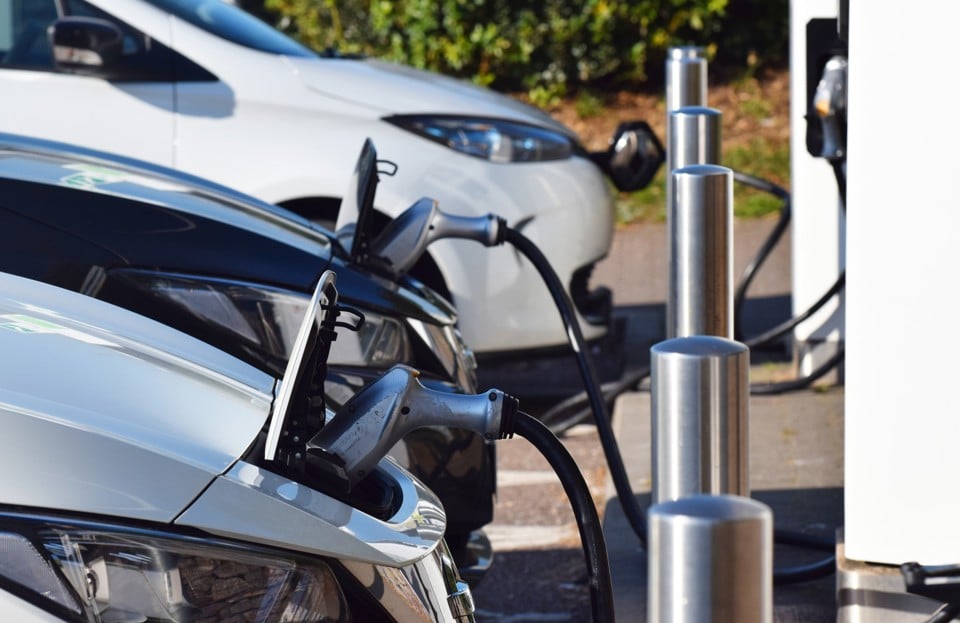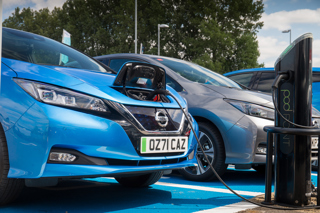Carmakers are facing fines of more than £600m, if new Zero Emission Vehicles (ZEV) mandate rules, for selling non-electric cars and vans, go ahead.
With fewer than a quarter of new electric cars being sold to consumers, the pressure is on dealers to level up and encourage more buyers into EVs.
DriveElectric has predicted that almost 450,000 new electric cars will be registered this year, compared with the 267,203 registered in 2022. But, the majority of EVs are currently sold to fleets.
Consumer confidence in electric cars has dropped significantly from two years ago, with only 9% of buyers, in a recent survey, saying their next car would be electric.
If dealerships are to take advantage of the shift to electrification and enjoy a successful Q3 and Q4 then they must increase the proportion of EVs sold, said Fraser Brown, managing director of automotive consultancy MotorVise.
A joint study by Electrifying.com and The AA found that just 16% of people agree that the Government is right to pursue the 2030 deadline for banning the sale of new petrol cars.
Surging prices for new EVs is one issue that is hampering sales. The survey found that 87% of buyers believe they are "too expensive".
Auto Trader data shows new EVs are, on average, 33% more expensive than traditionally fuelled vehicles.
It is calling for the Government to make EVs more affordable by using incentives in the tax system rather than relying on unsustainable market dynamics.
Ian Plummer, commercial director at Auto Trader, said: “There is still much more work to be done to achieve a mass transition to electric vehicles before the 2030 ban on new petrol and diesel models and ensure no driver is left behind. Support from the tax system to put the used EV market on a more robust footing is vital for the sustainability of the entire EV market and our chances of successfully transitioning to EVs by 2030.
“Consumers are still worried about affordability and charging, which is why we need a clear statement of intent from the Government. Penalising drivers who have to charge in public with higher VAT is simply unfair: we need to end this charging injustice.”
How the ZEV Mandate will work
The proposed ZEV Mandate requires vehicle makers to ensure at least 22% of their new car sales and 10% of new vans are zero emissions in 2024. This will then rise incrementally each year to 80% for cars and 70% for vans in 2030, and 100% for both by 2035.
Vehicle makers that fail to achieve the ZEV mandate sales targets will be subject to fines, with a system of proposed flexibilities and credits to support those that sell a low volume of electric vehicles (EVs).
Research from New Automotive shows that 32 car manufacturers would collectively be 44,000 credits short of meeting these targets, if the ZEV mandate had been in force over the last 12 months.
If a company misses the target, it will be made to pay the Government £15,000 for every vehicle that doesn't comply. This totals £660m in borrowing costs, according to New Automotive.
Fears have already been raised that the proposals could create another vehicle supply crisis, if manufacturers decide to cap the number of non-electric vehicles they sell.
Decision yet to be made
The Government has been consulting on the ZEV mandate, since it published a proposal of how the scheme could work, in April.
The proposals fail to define which vehicles will be permitted for sale between 2030 and 2035, which the Government has stated must have ‘significant zero emission capability’.
The consultation also states that only true “zero carbon” technologies will be permitted post 2035, which could rule out synthetic e-fuels as an alternative to electrification or hydrogen.
Mike Hawes, SMMT Chief Executive, said: “We want regulation that gives consumers choice and affordability, and enables manufacturers to transition sustainably and competitively.
“While the proposals rightly reflect the sector’s diversity, late publication and lack of regulatory certainty make product planning near impossible, and the continued lack of clarity as to what technologies will be permitted beyond 2030 undermines attempts to secure investment.”
Which manufacturers face the biggest penalties?
In the first half of 2023, 16% of all new cars sold were electric. Only 11 car makers exceeded the proposed 22% target for EV sales, however, and a third of all the EVs sold in the UK between January and July came from just three brands.
Manufacturers such as BYD, GWM ORA, MG, Polestar, Smart and Tesla are significantly ahead of the target, due to their model ranges being mainly or entirely electric.
BMW, Cupra, Jaguar, Porsche and Volvo are also close-to or already achieving the target, based on current registration figures.
Brands with the highest proportion of EV sales in H1 2023:
|
Manufacturer |
EV % |
|
BYD |
100% |
|
Cupra |
26% |
|
Genesis |
76% |
|
Jaguar |
28% |
|
MG |
38% |
|
Polestar |
100% |
|
Porsche |
27% |
|
Tesla |
100% |
Brands with no EVs include Alfa Romeo, Dacia and Seat, but they are all part of larger automotive groups and may benefit from credit sharing arrangements.
Japanese brands Honda, Mazda, and Toyota Lexus face a particular challenge, as the bulk of their sales come from internal combustion engine (ICE) models.
Ford, equally, has a strong ICE mix, with EVs making up just 2% of its registrations in the first half of 2023.
Brands with the lowest proporton of EV sales in H1 2023:
|
Manufacturer |
EV % |
|
Alfa Romeo |
0% |
|
Dacia |
0% |
|
Honda |
1% |
|
Jeep |
1% |
|
Land Rover |
0% |
|
Lexus |
7% |
|
Mazda |
2% |
|
Seat |
0% |
|
Toyota |
1% |
Tim Slatter, Ford Motor Company chair, said Ford supports the ZEV mandate but has raised concerns that carmakers will also face increased trade tariffs from next year, as a result of changes to the UK-EU Trade and Cooperation Agreement (TCA).
He added: “Introducing EV tariffs at the same time will undermine the mandate and slow the growing EV trend.
“Today the industry does not have sufficient locally-sourced batteries and components to meet demand. Tightening trade rules at this point risks undermining the switch to EVs with tariffs and adding pointless cost to customers wanting to go green. Manufacturers who have invested most early in the transition will be hardest hit by tariffs as combustion engine vehicles will continue to move tariff-free.”
Ford is calling for current trade requirements to be extended to 2027, to allow time for the battery supply chain to develop in UK-EU and to meet EV demand.
Stellantis brands Citroen, Peugeot and Vauxhall all have multiple EVs in their respective line ups, yet the group’s EV registrations currently make up only 15% of its total sales.
A Stellantis spokesperson told AM: “We welcome the flexibilities for banking, borrowing, trading and pooling and we welcome closed pooling being permitted.”
They added: “No decision has been made on the specifics of our strategy to date.”
Stellantis expects to see growth in the EV market for all its brands. By next year Vauxhall will offer an electric variant of every car it sells, while Jeep is about to start selling its first EV in the UK.
Toyota Lexus declined to comment on the ZEV mandate, but in a recent interview with our sister title, Fleet News, Neil Broad, general manager of One Toyota Fleet Services, acknowledged that the brand - like many others - faces a challenge in the short-term.


















Login to comment
Comments
No comments have been made yet.